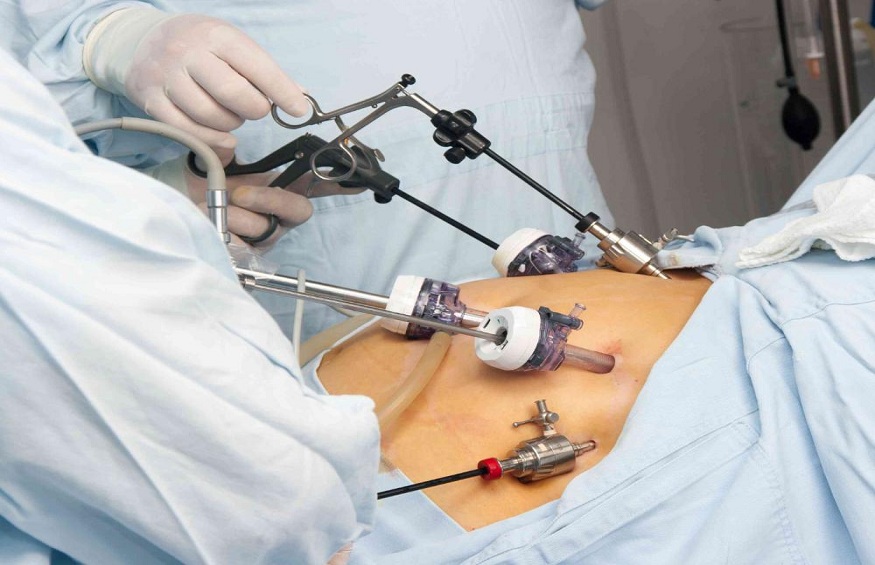The Covid-19 pandemic was the most concerning health issue in the past two years and one cannot deny the fact that it impacted individuals with underlying health complications the worst. One such silent assassin is the Gastrointestinal or GI Disorder. According to the Rome Foundation Global study (2020) more than 40% of the participants in the survey had Functional Gastrointestinal Disorders (FGIDs). GI disorders consist of a group of compilations or disorders of the GI tract, which affect quality of life and sometimes require GI surgery. Say you are looking for GI surgery in Dallas Tx, the foremost thing you should do is consult a reputable general surgeon near you to understand your condition and underlying health complications. Opting for gastro-intestinal surgical solutions requires you to make tough lifestyle calls, which is why it is common to have several questions flooding your mind. Don’t worry, go through this blog as we have answered some of the most commonly asked questions about GI surgery.
1. What is gastrointestinal surgery?
Gastrointestinal surgery is a surgical gastric solution for diseases or disorders of the Gastrointestinal tract or GI Tract, which constitutes organs such as the esophagus, stomach, and intestines (small and large) directly or indirectly involved in the digestion process. GI surgery is done to remove oncogenic (cancerous) or non-oncogenic (non-cancerous) growths within the body and repair an underlying issue such as a hernia. GI surgery is preceded by a screening process called ‘Endoscopy’, to diagnose problems in the digestive system.
2. Under what conditions gastrointestinal surgery is used?
Gastrointestinal surgery is used to treat several conditions affecting the digestive system such as:
- Gastrointestinal Cancers: Cancer is nothing but an uncontrolled growth of tissue caused by the failure of certain checkpoints during the cell cycle. In a GI surgery, your surgeon may remove a tumor such as colon cancer based on the extent of underlying damage.
- Hernia: A hernia is the protrusion of an internal tissue or organ into the surrounding space or opening in the body. A GI surgery may be required to remove the bulge or place it back to its position.
- Appendicitis: It is the infection of the appendix, requiring partial or complete removal.
- Gallbladder Disease: One of the most common issues with the gallbladder is the gallstones that require surgery to be removed, called Cholecystectomy.
- Rectal Prolapse: A GI surgery can be vital to treat rectal prolapse, a condition where a part of the large intestine comes out of the anus.
3. What is the procedure for gastrointestinal surgery?
The two types of GI surgeries are:
- Open Surgery: This one’s a traditional surgical technique where large cuts are made to open up the body.
- Laparoscopic Surgery: This minimally invasive surgery is done by making small cuts on the body and a camera to see inside the body. Since these small cuts heal faster than the larger ones, the risk of complications such as blood loss is minimal. There are also robotic surgeries which involve robotic arms to conduct the surgeries through the laparoscopy.
During surgery, anesthesia is provided to alleviate any discomfort sensations. Local or regional anesthesia numbs only a specific area of the body, whereas general anesthesia puts the patient to sleep. The type of anesthetic utilized is determined by the procedure.
4. How do I prepare for gastrointestinal surgery?
Preparing for a GI surgery depends on which surgery you are undergoing. When consulting for GI surgery in Dallas, TX or anywhere else, your nurse or doctor will instruct you on how to prepare for surgery. Most likely, you will be told not to eat or drink anything before the surgery. Before surgery, your doctor may also advise you to discontinue taking certain medications or vitamins. Strictly follow all the instructions.
5. What are the probable risks of gastrointestinal surgery?
In surgeries, there’s always a risk of side effects or complications and GI surgery is no exception. Though laparoscopy is considered to be safer than the traditional method, you should consult a general surgeon that will guide you about the probable risks involved. Let’s have a look at some of these risks:
- Infection: Infections can enter the body through any opening in the body during and post the surgery. Surgeons take great care to keep things safe and sterile during surgeries, but there is always the possibility of infection.
- Pain: Depending on the procedure, inflammation and pain may occur during recuperation.
- Bleeding & Blood Clots: Sometimes surgical cuts continue to bleed, causing recuperation to take longer. Sometimes the body creates blood clots where the surgery was performed, which can disrupt vital blood vessels leading to the lungs, heart, or brain.
- Damage to other organs: During surgery, a healthy body part can be inadvertently harmed.
- Reaction to anesthesia: Some people are sensitive to anesthetics and may experience nausea and vomiting
While there might be side effects or risks to almost all medical procedures, if there’s one thing that doesn’t involve any risks is opting for GI surgery from an experienced doctor that informs you of all the ins and outs of the surgery.
Conclusion
Dealing with gastrointestinal complications can be overwhelming for you, which is why if you live in or near Dallas, you should turn to a professional general surgeon in Dallas TX that takes you through this process with all you need to know and advice the best possible solution for you. For GI surgery in Dallas TX, consult a reputable doctor that helps you determine your eligibility for the best possible surgical solution and help you overcome it.



